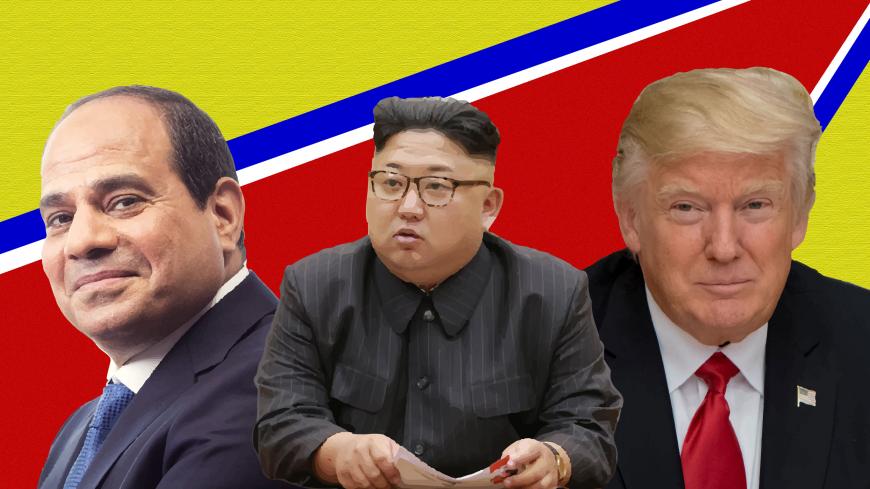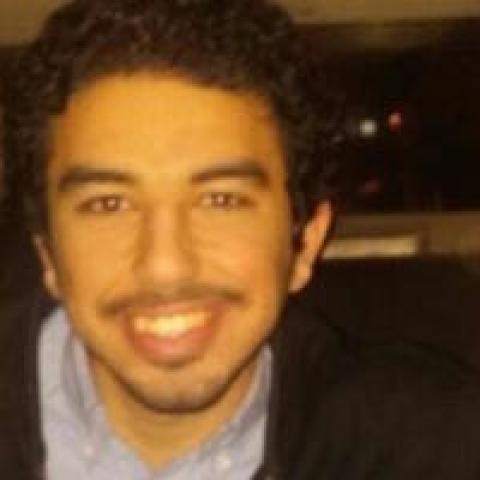North Korean economic delegation makes rare visit to Iran
The visit comes amid growing US concerns about military cooperation between Iran and North Korea.

A high-level North Korean economic delegation embarked on a rare public visit to Iran this week, as the region witnesses mounting tensions amid the Israel-Hamas war.
North Korea’s state-run Korean Central News Agency reported on Wednesday that Minister of Economic Relations Yun Jung Ho departed from Pyongyang on Tuesday with an economic delegation. The agency did not offer details on the purpose or agenda of the visit.
The last known trip by North Korean officials to Iran was in August 2019. At the time, Vice President of the Supreme People's Assembly Pak Chol-min met with Iranian Parliament Speaker Ali Larijani in Tehran, where he stressed the importance of promoting bilateral ties in various sectors.
Concerns over growing Iran-North Korea cooperation
The rare trip, which was not reported by Iranian media, has raised suspicions of further military cooperation between Tehran and Pyongyang and its implications in the Middle East.
Iran and North Korea, both pariah states under international sanctions over their nuclear programs, established diplomatic relations in 1973. Since then, their economic and military ties have grown. The United States has long accused North Korea of sending weapons to and sharing nuclear expertise with Iran.
Iranian-North Korean cooperation is back in the news after Iran launched hundreds of drones and missiles toward Israel earlier this month.
When asked about Tehran potentially working with Pyongyang on nuclear weapons and ballistic missiles programs during an April 16 press briefing, US State Department Spokesperson Matthew Miller said, “Certainly that’s something we’d be incredibly concerned about.”
US Ambassador to the United Nations Linda Thomas-Greenfield expressed similar concerns during her visit to South Korea on April 17.
“We are concerned about the Iranians providing weapons to the Russians and the Russians also supporting efforts to help North Korea expand their own research into developing weapons, and certainly that would be the case with Iran as well,” Thomas-Greenfield told reporters in Seoul.
In a 2019 report on Iran’s military power, the US Defense Intelligence Agency revealed that the Islamic Republic had purchased weapons, tanks and submarines from North Korea. The report also claimed that North Korea had provided significant support for Iran’s domestic weapons production capabilities.
The Palestinian Hamas movement has also been accused of using North Korean weapons during its cross-border assault into south Israel Oct. 7 and the war in Gaza. In January, South Korea’s spy agency confirmed Hamas' use of North Korean F-7 rocket-propelled grenades.
Both Iran and North Korea are suspected of sending weapons to Russia for its war on Ukraine, prompting US sanctions against the two countries.
Yun also visited Moscow in late March as North Korea endeavors to break its international isolation and build a stronger front against the United States.
In September 2023, North Korean leader Kim Jong Un, who rarely leaves the country, headed by train to the far eastern Russian city of Artyom on a six-day trip during which he held a rare meeting with Russia’s President Vladimir Putin. The Korean Central News Agency reported at the time that the visit marked "a fresh heyday of friendship and solidarity" and that "cooperation is being opened up in the history of the development of the relations between the DPRK and Russia.”
Iranian leader on regional tour
The North Korean visit to Iran coincides with Iranian President Ebrahim Raisi’s tour in South Asia. Raisi arrived in Sri Lanka on Wednesday for the first visit by an Iranian president in 16 years.
Raisi had just spent three days in Pakistan, where the two countries signed eight cooperation agreements in various fields including in security and economy.
Washington threatened to impose sanctions on Pakistan for doing business with Iran.
“Just let me say broadly, we advise anyone considering business deals with Iran to be aware of the potential risk of sanctions,” State Department spokesperson Vedant Patel told reporters on Tuesday. “But ultimately, the government of Pakistan can speak to their own foreign policy pursuits.”
Iran has come under scrutiny over its support for Hamas and its suspected role in the Oct. 7 attack on Israel.
On April 15, the Islamic Revolutionary Guard Corps fired more than 300 drones and missiles toward Israel, most of which were intercepted, in retaliation for a suspected Israeli strike on its consulate in Damascus earlier this month that killed at least seven people, including two IRGC commanders.









